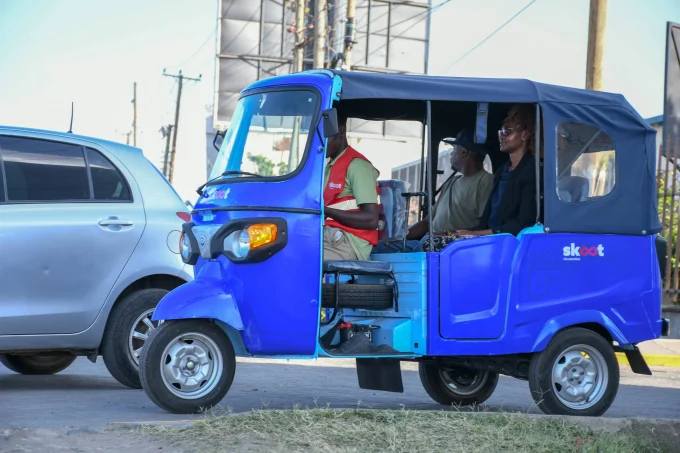NAIROBI, Kenya: June 26 (Xinhua) — Kenya has carried out business reforms and reduced the number of days taken to set up firms, making it easier for local investors to operate their businesses in the east African nation, the World Bank said on Tuesday.
The Bank’s Doing Business in Kenya 2012 which was launched in Nairobi lauded government-implemented business reforms which it said has paid off and thus making it easy for local entrepreneurs to start and operate a business across the country.
“Such reforms are important for Kenya’s future, where informality still keeps wages down and where a growing population needs a similar growth in employment opportunities,” WB’s Lead Private Sector Development Specialist Mierta Capaul said during the launch in Nairobi.
The study funded by donors at the request of the government said reform efforts by the national and local governments over the past two years have reduced the average time to start a business by 22 days and the average cost of 5 percent.
“Globally, the Doing Business project has shown that streamlining procedures and the cost to start a business play a key role in enabling local small and medium enterprises,” Capaul said.
Early this month, East African Business Council (EABC) released a study which showed that Kenya is yet to improve the business climate factors that encourage cross border investment among the five member East African Community (EAC) states.
According to findings from the EAC Business Climate Index Survey of 2011, the East African nation is yet to implement measures aimed at facilitating smooth trade.
“The business environment in Kenya was similar or recorded slight deteriorations on non tariff barriers and other business climate factors since the last report in 2008,” EABC Policy Analysts Andrew Kaggwa said during the launch of the report in Nairobi on June 13.
The report will be used by the EAC Secretariat as well as the non tariff barriers National Monitoring Committees in order to identify areas of reforms. Analysts said Kenya’s economy has been experiencing turbulence caused by internal and external factors.
High food and fuel prices, the recent drought in the Horn of Africa which has been followed by heavy rains and flooding and the euro crisis have further weakened Kenya’s external position this year. However, the analysts noted that if Kenyans manage these challenges well, they may set the foundation for a more prosperous future.
According to the latest report from the World Bank and IFC, all 13 Kenyan cities have improved business registration processes over the last two years while two cities expedited the approval of construction permits.
“Joint reform efforts by the national and local governments have reduced the average time to start a business by 22 days and the average cost by five,” it said.
The study which documents business reforms in all four of the areas measured – starting a business, dealing with construction permits, registering property and enforcing contracts – says Mombasa city made the most improvements across three out of the four areas measured.
“Mombasa, due to a broad-based business-reform program, starting a business and issuance of municipal building permits are one month faster today than in 2009,” it said.
Doing Business in Kenya 2012 is the second in a series that analyses business regulations from the perspective of small and medium enterprises in 13 Kenyan cities. The study also revealed that the opening of a specialized court in September 2011 paved the way for more efficient commercial dispute resolution.
Analysts said the East African nation is already the manufacturing giant of the region with most of her manufactured goods being exported to East Africa Community and the larger Common Market for Eastern and Southern Africa (COMESA). But the sector is not big enough to generate adequate jobs and export volumes that can bring in enough foreign currency inflow that will balance the heavy spend by Kenya on oil, food and lifestyle imports.
According to the report, it is easiest to start a business in Thika, about 30 km east of Nairobi, to deal with construction permits in Malaba, the border with Uganda; to register property in Mombasa; and to enforce a contract in Garissa in northern Kenya.
The study shows that it’s most difficult to start a business in Western Kenyan city of Kisumu, to deal with construction permits in Nakuru in central Kenya, to register property in Isiolo, and to enforce a contract in Nairobi.
“While no single city performs well on all four indicators collectively, it is easiest to start a business in Thika, deal with construction permits in Malaba, register property in Mombasa and enforce a contract in Garissa,” it said.
Kenya is seeking to achieve middle income status by the year 2030, driven by its economic blue print popularly known as Vision 2030 which identifies services industry like the information communication technology (ICT), tourism and financial services as key pillars of this growth.
Kenya is already a regional leader in ICT related innovation with the flagship mobile money transfer service MPESA and is deepening its capital markets in a bid to become a regional financial hub. (Xinhua)
















































![Pula Co-Founders and Co-CEOs, Rose Goslinga & Thomas Njeru. Pula provides agricultural insurance and digital products to help smallholder farmers manage climate risks, improve farming practices and increase their incomes. [ Photo / Courtesy ]](https://businesstoday.co.ke/wp-content/uploads/2021/01/Pula-Co-Founders-and-Co-CEOs-Thomas-Njeru-Rose-Goslinga.jpg)




























































Leave a comment